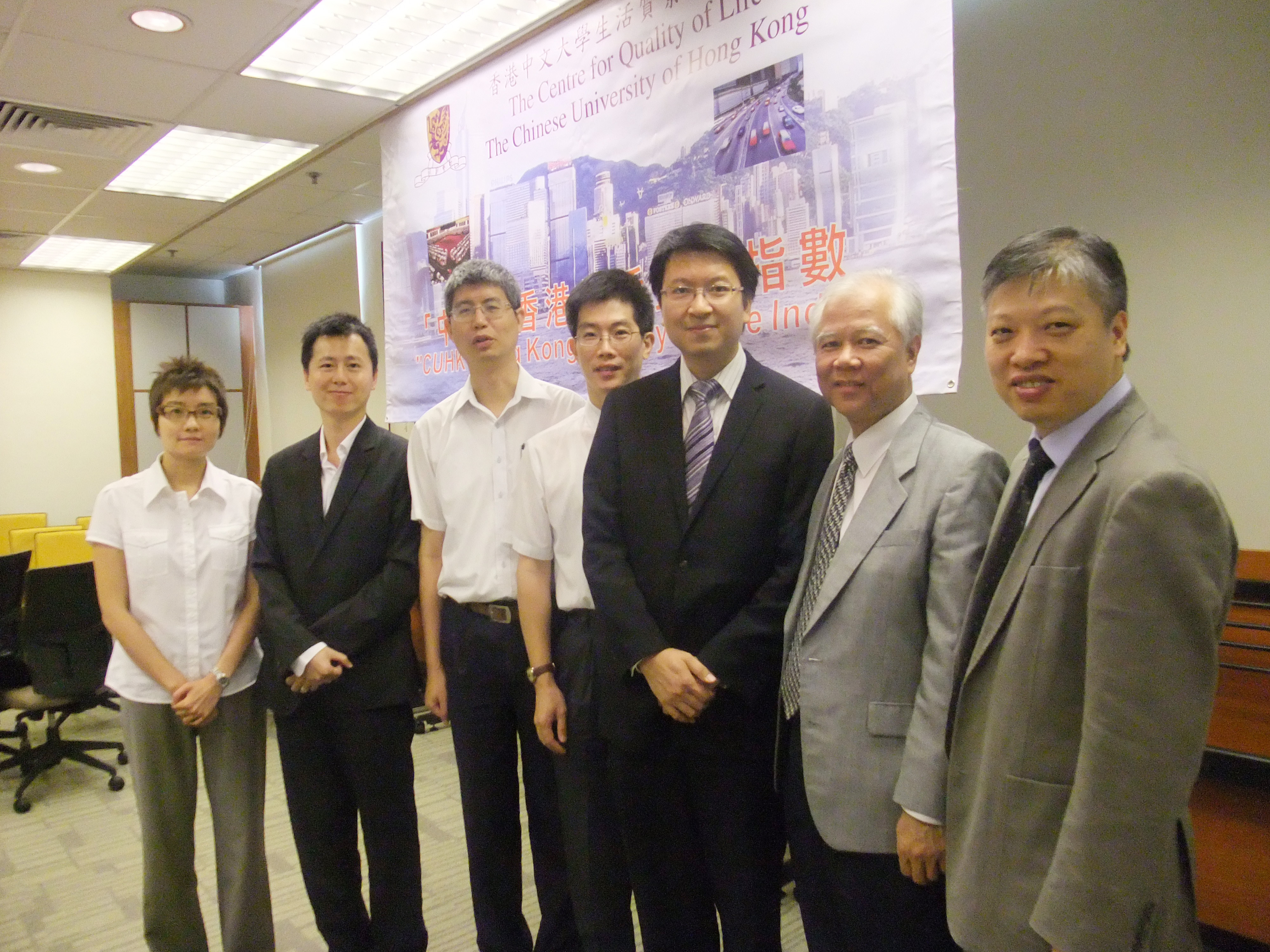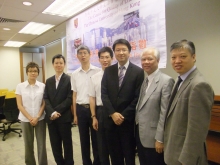CUHK
News Centre
CUHK Hong Kong Quality of Life Index: Quality of Life in Hong Kong Declines Further
The CUHK Hong Kong Quality of Life Index, compiled by the Centre for Quality of Life of The Chinese University of Hong Kong (CUHK), shows that the quality of life in Hong Kong declined further in 2009.
According to the latest CUHK Hong Kong Quality of Life Index, the overall score in 2009 fell to 102.19, a drop of 2.64 points from 2008 (104.83), and was lower than those of 2007 (108.78), 2006 (108.93), 2005 (108.34), 2004 (105.78), and 2003 (104.20), indicating that the quality of life in Hong Kong has continued to decline in the last two years (Appendix 1).
The Index consists of 21 indicators that are grouped into three sub-indices, viz. social, economic andenvironmental (Appendix 2). The indicators are selected according to the coverage, measurability, representativeness, and importance to the quality of life in Hong Kong.
Comparing with the 2008 scores, the economicand environmental sub-indices slightly improved in 2009, while the social sub-index has significantly declined.
Compared with the previous year, 5 out of the 21 indicators worsened in 2009Note(Appendix 3), with the most noticeable being the higher rate of reported infectious diseases. The index plunge(from 6.48 to 0.74) was attributed to the outbreak of the Human Swine Influenza pandemic in 2009. Under the economic sub-index, the most noticeable drop is found in the housing affordability ratio (from 1.72 to 1.18), meaning that housing has become less affordable in 2009.
Compared with the 2008 figures, 14 out of the 21 indicators improved in 2009 (Appendix 4), with the most notable being the public expenditure on health, the public expenditure on education and the real rental index. All four indicators under the environmental sub-index went up, indicating that the air quality, water quality, noise pollution and the recycle rate of solid waste had improved. Besides, the press freedom index and the age participation rate for first-degree programmes and postgraduate programmes in local universities remained unchanged (Appendix 1).
The CUHK Hong Kong Quality of Life Index was designed by the Faculty of Social Science in 2003. This composite index is intended to measure and keep track of the quality of life in Hong Kongin the 21st century, and to provide policy makers and the community with a useful reference tool. It also aims at enhancing the quality of life in Hong Kongby drawing the public’s attention to this issue. Starting from the year of 2003, the Index has been released annually. For this reason, the Centre for Quality of Life has been set up to conduct on-going quality of life research.
2002 was the base year of the study, and the CUHK Hong Kong Quality of Life Index for that year was set at 100. If the Index of a subsequent year is above 100, it means that the quality of life in Hong Kongin that year is better than that of 2002. If the index is below 100, it reveals that the quality of life in Hong Kongin that year is worse than that of 2002. If the Index is 100, it indicates that the Hong Kongquality of life in that year is the same as that of 2002.
For more information on the CUHK Hong Kong Quality of Life Index, please visit The Centre for Quality of Life website: www2.cuhk.edu.hk/ssc/qol.
NoteThe higher the score, the better the performance of the indicator.
(From left) Prof. Winnie Mak, Associate Professor, Department of Psychology; Prof. Ng Kai Hon, Assistant Professor, Department of Government and Public Administration; Prof. Ma Ngok, Associate Professor, Department of Government and Public Administration; Prof. Ng Sai Leung, Director, Centre for Quality of Life and Associate Professor, Department of Geography and Resource Management; Prof. Chong Tai Leung, Associate Professor, Department of Economics; Prof. Paul Lee, Dean of Social Science and Professor, School of Journalism and Communication; and Prof. Ting Kwok Fai, Professor, Department of Sociology, CUHK



